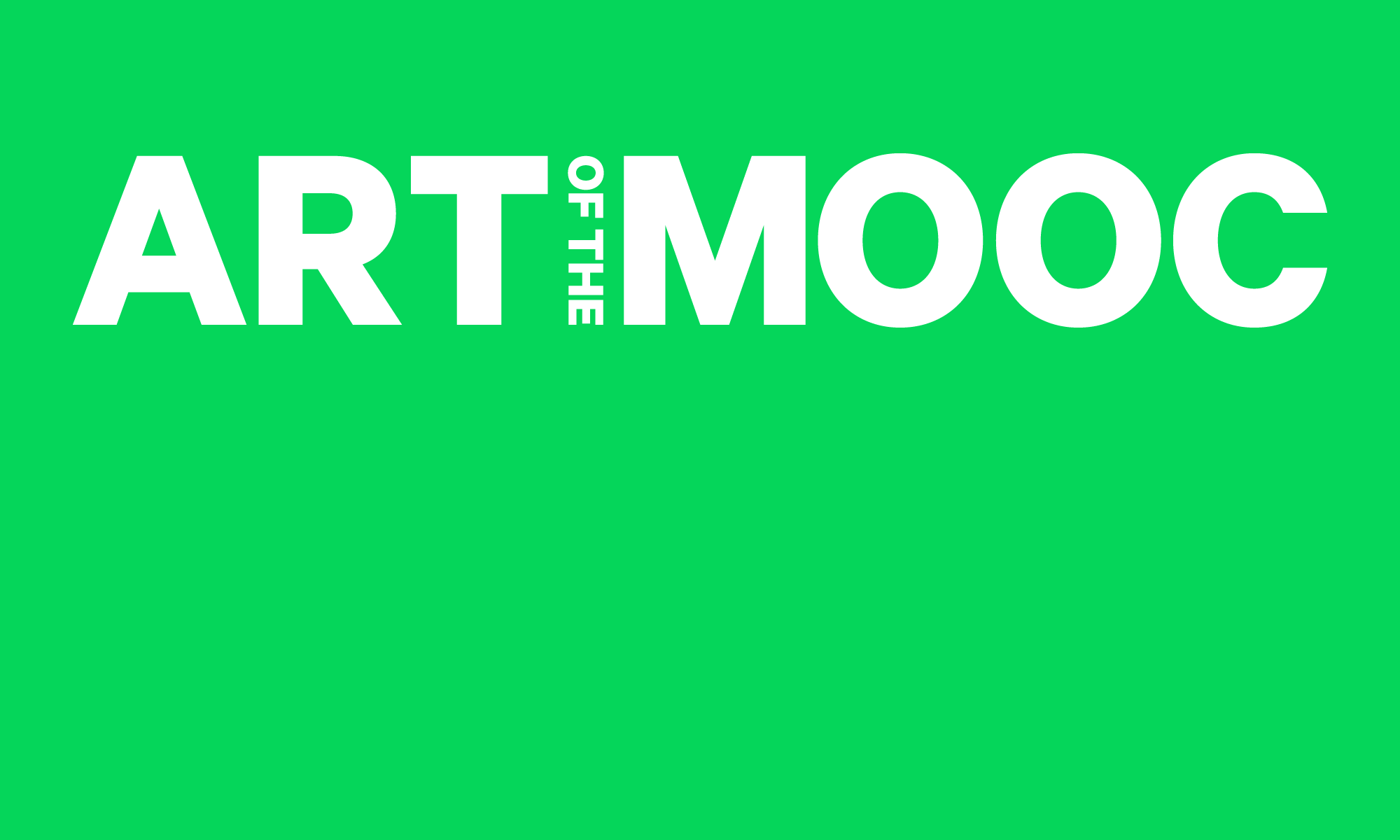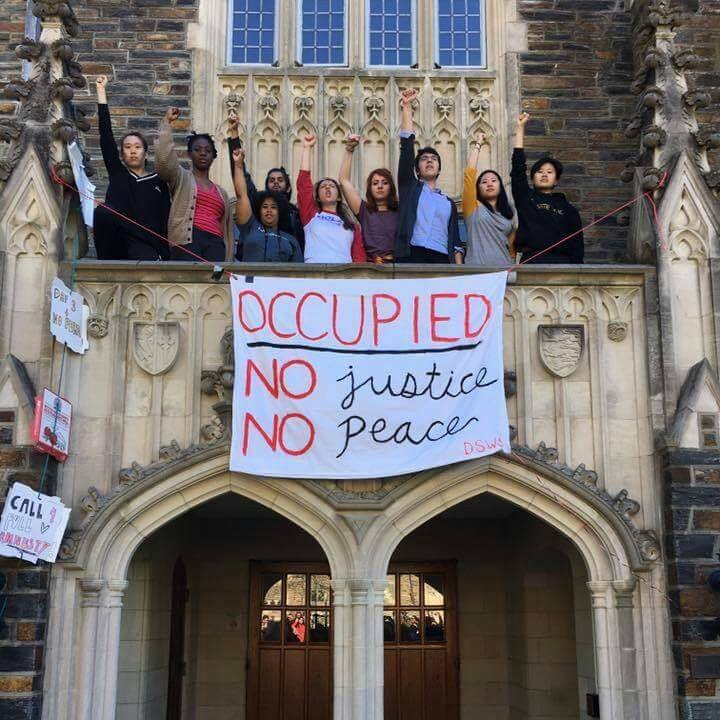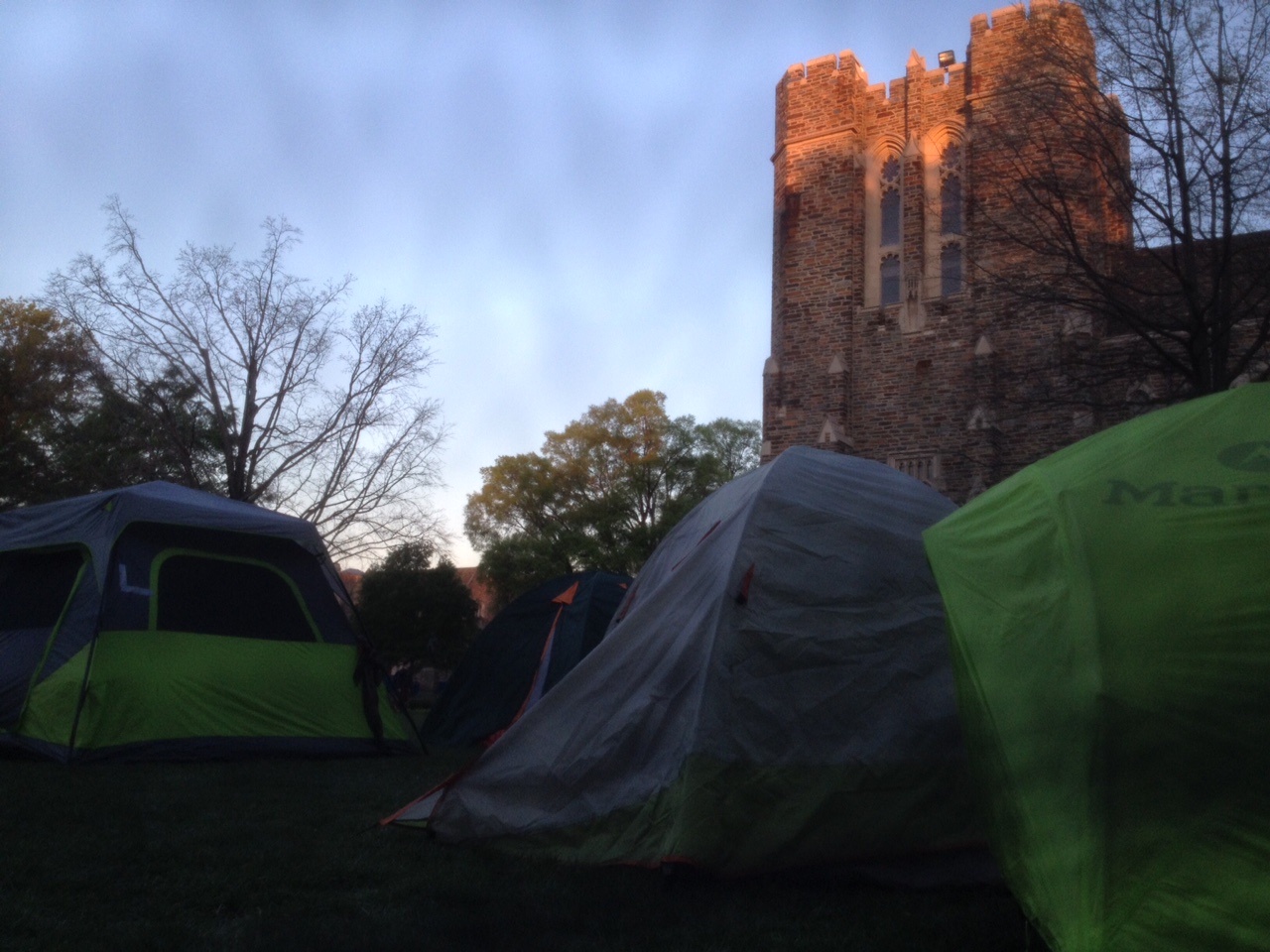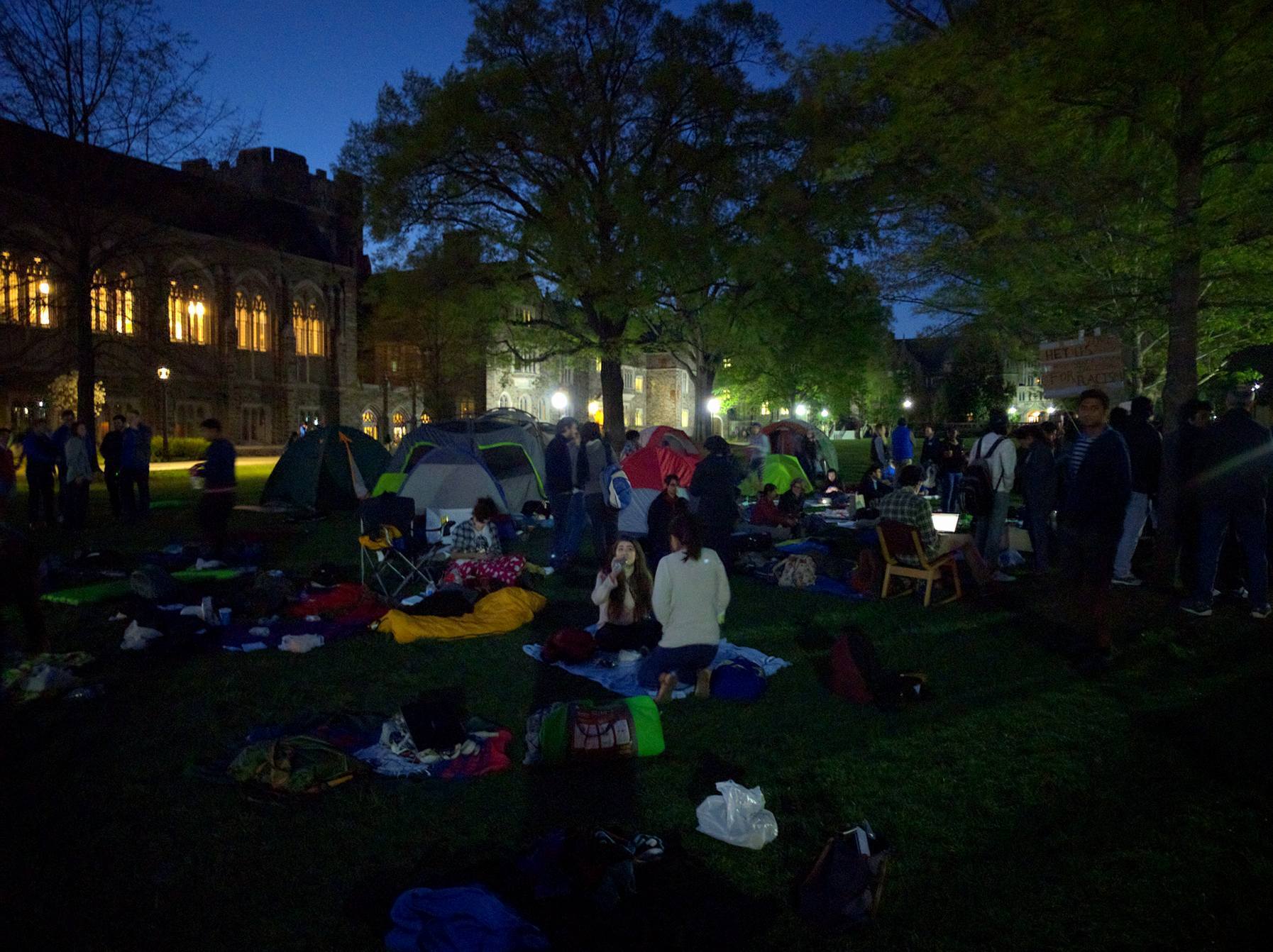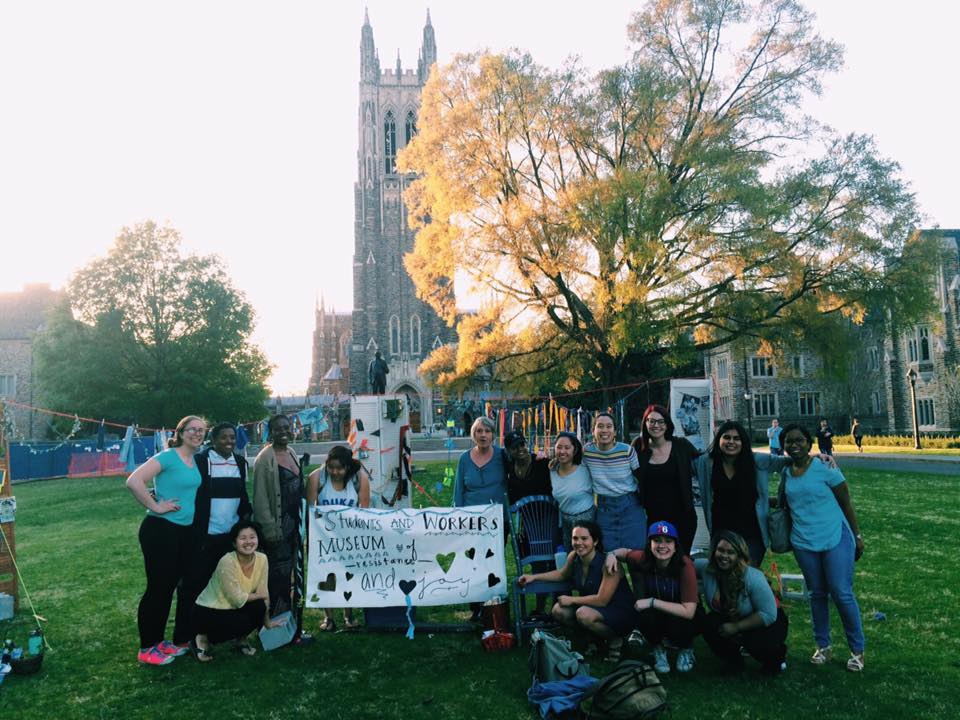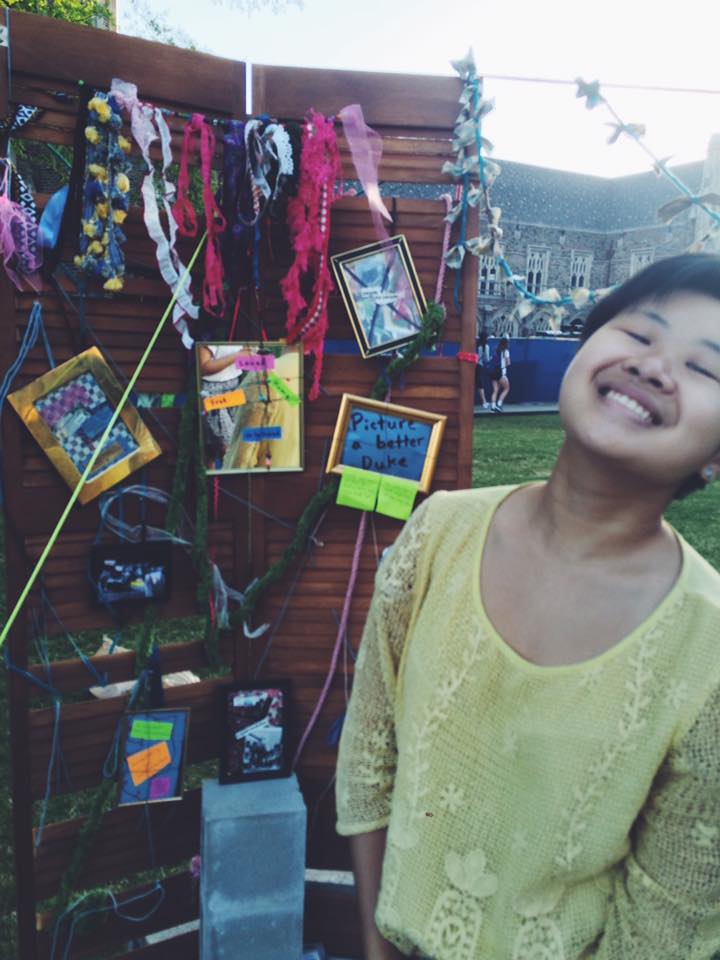April 1, 2016, nine students at Duke University started occupying an administrative office to demand accountability for workers’ rights on campus. The takeover, modeled on a takeover of the same building in 1969, followed reports of institutionalized racism in Parking and Transportation Services and an incident in which Executive Vice President Tallman Trask hit into a parking worker with his car and drove away. The student occupiers have made demands including an outside investigation into Parking and Transportation Services working conditions, accountability for subcontractors, and an increase in Duke minimum wage to $12.53 for all employees (including part-time and subcontracted employees). During the occupation, students outside camped in tents to express support. This tent village, dubbed A-ville after the K-ville of Duke Basketball fame, established a close-knit community that danced, chanted, and sang to support those inside. A-ville even had its own floutist.
The name A-ville was originally taken up when students began camping outside the Allen Building in support of the 9 students taking part in the sit-in, as part of a call for amnesty for the students. Located on Abele Quad, the land named after the Black Architect who designed much of Duke’s West Campus, the name “A-Ville” turned quickly from “Amnesty-Ville” to “Abele-Ville” once the protest had been effective in securing a promise of amnesty.
The occupation has also been an occasion for artistic resistance. Student occupiers decorated the administrative offices with banners, ribbons, and post-its. One occupier set up an alter with crystals. Two occupiers, Amy Wang and Lara Haft, delivered a spoken word poem about their experience.
Protestor’s note: it was me with the crystals, truth be told. Also, we’re trying to move away from the language of “occupation” after one of our organizers on the outside had a convo with some folks about the way this term invokes settler coloniast narratives that aren’t appropriate for us to draw from. So we’re trying to be mindful of that and have a growth mindset, and are using more terms like “sit-in” “takeover” or “protest”.
In the week before the occupation, students garnered attention for workers’ rights with the Students’ and Workers’ Museum of Resistance and Joy. Set up on the Duke’s main quad, the museum featured an archive of student-worker solidarity and organizing, a chance for visitors to create collages picturing a better Duke, and dream jars with tokens from workers and students.
While pushing for accountability from the university, occupiers and organizers have created a community unlike any other I’ve seen at Duke. With over 14o organizers on a group text message and with students, workers, and staff forming a coalition, the movement is highly participatory. Wishing love to our occupiers as they go into their seventh day! As folks have been chanting in A-ville, “I believe that we will win!”
The seven original demands were:
1. We demand the immediate termination, without compensation, of EVP Tallman Trask III, VP Kyle Cavanaugh, and PTS Director Carl DePinto.
2. We demand that Tallman Trask issue a public apology to Ms. Underwood, all former and current PTS employees who have suffered racist abuse, and all of Duke and Durham’s community for his hateful, violent, and negligent actions.
3. We demand that Tallman Trask pay full legal and medical reparations to Ms. Underwood.
4. We demand that Duke University hire competent, outside employment counsel, approved by Duke Students and Workers in Solidarity, to conduct a full investigation into Parking and Transportation Services, the Office of Institutional Equity, and the Duke University Police Department in regards to their respective handling of Ms. Underwood’s case, as well as the unlawful discrimination complaints and reports filed by former and current PTS employees. Said counsel is to have no pre-existing relationship with Duke University, Duke University personnel, administrators, or board of trustees.
5. We demand a comprehensive and transparent review and revision of Duke’s employment standards and guidelines for sub-contracted workers, to ensure that they match the employment standards for Duke employees.
6. We demand transparency and community input in the recruitment and selection process for Duke administrators.
7. We demand that the minimum wage for Duke employees and sub-contracted workers be raised to $15/hour and for this rate to be indexed to keep up with inflation. This pay rate is closer to a living wage that strengthens their ability to meet their basic needs with dignity. Every worker deserves to be paid a fair wage and provided with the ability to make a decent living.
